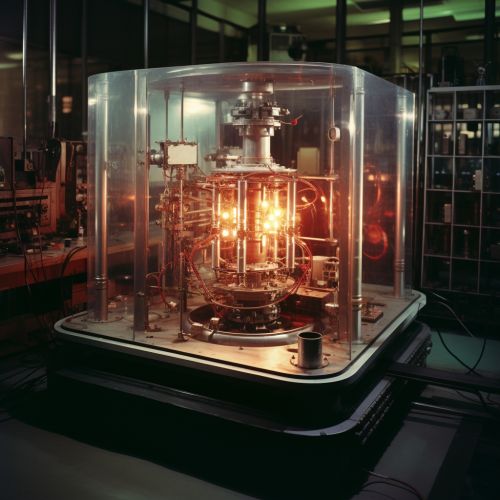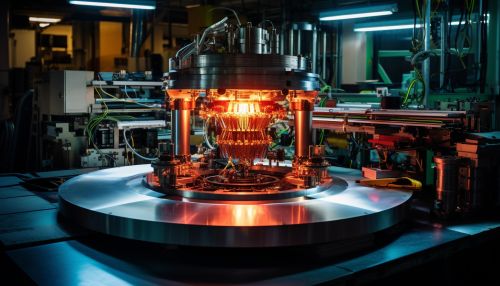Quantum Computing with Quantum Annealers
Introduction
Quantum computing is a rapidly evolving field that leverages the principles of quantum mechanics to perform computational tasks. One of the key components of quantum computing is the quantum annealer, a type of quantum computer that uses quantum fluctuations to find the minimum of a function, a process known as optimization. Quantum annealers have been used to solve complex problems in fields such as optimization, machine learning, and materials science.
Quantum Mechanics and Quantum Computing
Quantum mechanics is a branch of physics that describes the behavior of particles at the quantum scale, including electrons and photons. It introduces concepts such as superposition and entanglement, which are fundamental to quantum computing.
Superposition is a principle that allows quantum systems to exist in multiple states simultaneously. In the context of quantum computing, this means that a quantum bit, or qubit, can be in a state of 0, 1, or both at the same time. This is in contrast to classical bits, which can only be in one state at a time.
Entanglement is another quantum phenomenon where particles become interconnected. The state of one particle immediately influences the state of the other, no matter the distance between them. This property is used in quantum computing to link qubits, allowing for complex computations to be performed.
Quantum computing uses these principles to process information in ways that classical computers cannot. By leveraging superposition and entanglement, quantum computers can potentially solve problems that are intractable for classical computers.
Quantum Annealing
Quantum annealing is a quantum computing technique used to find the global minimum of a given function. It is particularly suited for solving optimization problems, which involve finding the best solution from a set of possible solutions.
Quantum annealing starts by initializing a system of qubits in a superposition of all possible states. The system is then slowly evolved, under the influence of a problem-specific Hamiltonian, towards a state where all qubits are in a definite state. The final state of the system represents the solution to the problem.


Quantum annealing leverages quantum tunneling, a phenomenon where particles can pass through barriers that would be insurmountable in classical physics. This allows the quantum annealer to explore the solution space more efficiently and escape local minima, increasing the likelihood of finding the global minimum.
Quantum Annealers in Practice
Several companies and research institutions are developing quantum annealers. One of the most well-known is D-Wave Systems, a Canadian company that has been producing quantum annealers since 2011. Their machines have been used by organizations such as Google, NASA, and Lockheed Martin to explore the potential of quantum computing.
Quantum annealers have been applied to a variety of problems, including optimization problems, machine learning tasks, and materials science research. For example, they have been used to optimize traffic flow in large cities, train machine learning models, and simulate the behavior of complex materials.
Limitations and Challenges
Despite the potential of quantum annealing, there are several challenges and limitations that need to be addressed. One of the main challenges is the issue of quantum decoherence, where quantum states lose their quantum properties due to interactions with the environment. This can lead to errors in the computation and limit the size and complexity of problems that can be solved.
Another challenge is the difficulty of programming quantum annealers. Unlike classical computers, which have a well-established programming paradigm, quantum computers require a different approach to programming. This can make it difficult for developers to effectively utilize quantum annealers.
Future Directions
Research in quantum annealing is ongoing, with many researchers exploring ways to overcome the current limitations and challenges. There is also a growing interest in hybrid quantum-classical algorithms, which combine the strengths of quantum and classical computing.
In addition, there is ongoing research into new applications for quantum annealers. As the technology matures, it is expected that they will be used to tackle increasingly complex problems in fields such as artificial intelligence, drug discovery, and climate modeling.
See Also
Quantum Computing Quantum Mechanics Optimization (mathematics)
